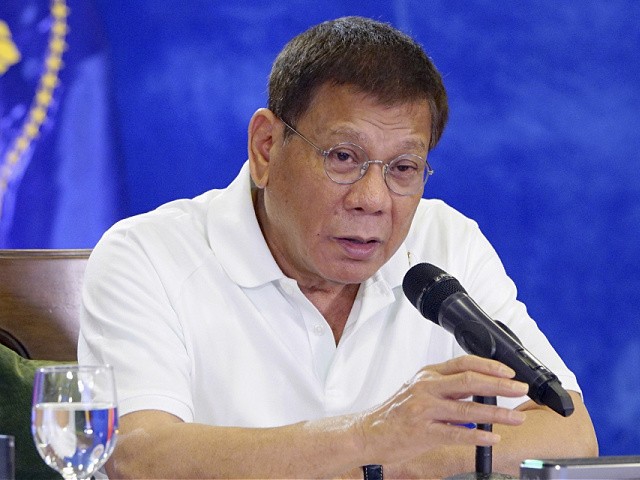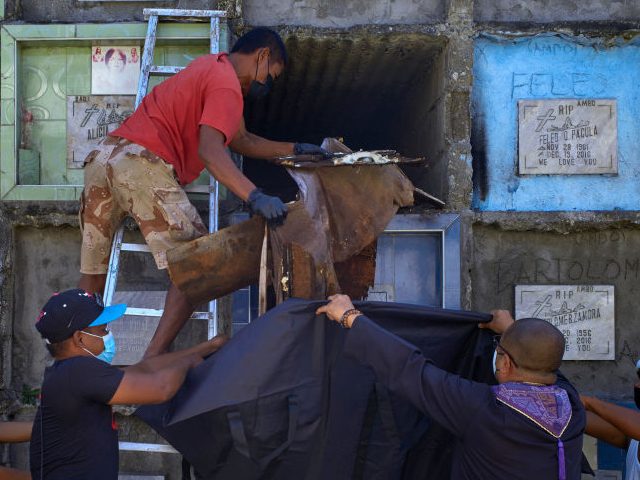The bodies of some people killed in connection with Philippine President Rodrigo Duterte’s “war on drugs” from about 2016 to 2019 have been forcibly exhumed in Manila in recent weeks due to expiring leases on their temporary graves, the U.K.’s Guardian newspaper reported on Sunday.
A woman named Sarah Celiz told the Guardian for its May 22 report that she was recently forced to turn to a Catholic charity to pay for the cremation of the bodies of her two sons, who were both killed as part of President Duterte’s “war on drugs” in 2017 in Manila. Celiz had temporarily laid her sons’ remains to rest at a short-term cemetery, but the lease on the rented plots recently expired.
“It’s likely many more victims [of Duterte’s “war on drugs”] will face evictions from cemeteries as the five-year leases on their graves expire,” the Guardian predicted on Sunday.
“Victims were often buried in ‘apartment graves’. These are far more affordable than permanent sites or cremations, but they’re only temporary. After the lease expires, families are responsible for finding an alternative arrangement,” the newspaper noted.
Metro Manila has one of the highest population densities in the world, with 27,307 people per square mile, meaning burial plots in the metropolis are increasingly scarce and expensive.
The Philippine national capital region was the epicenter of Duterte’s “War on Drugs” from 2016 to 2019. The campaign targeted the production and trade of illegal drugs in the Philippines. Illicit drug gangs based in China began flooding the Philippines in about 2016, launching an ongoing drug crisis in the poverty-stricken country. The industry largely surrounds crystal methamphetamine, which is a highly addictive and deadly drug known as “shabu” in the Philippines.
Duterte’s single, six-year term as president of the Philippines is set to expire on June 30. He publically encouraged his successor in the office, Philippine President-elect Ferdinand Marcos Jr., to continue the anti-drug campaign during his upcoming administration on May 12.

Outgoing Philippine President Rodrigo Duterte meets members of the Inter-Agency Task Force on the Emerging Infectious Diseases in Davao city on Monday, February 15, 2021. (Joey Dalumpines/Malacanang Presidential Photographers Division via AP)
Duterte said he “would insist on a continuance of the drug war” during Marcos’s upcoming presidency.
“This will not stop because of the lure of millions that will be gotten by the businessmen, the traffickers and the drug lords,” he said during a regular national address.
“This one, it has to be war. You cannot say it’s just a special operation of the police or the military. It cannot be because this thing is a very sinister and a virulent activity that would affect the life of the nation,” Duterte added.

COMMENTS
Please let us know if you're having issues with commenting.